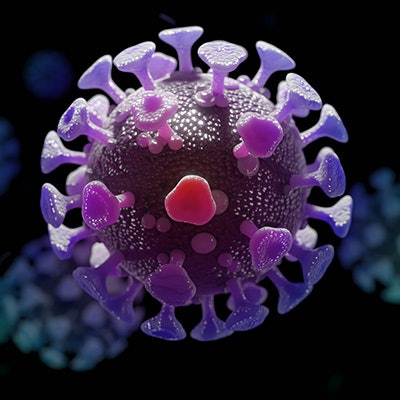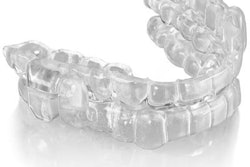
Patients diagnosed with obstructive sleep apnea (OSA) may be at increased risk for more severe complications from COVID-19, according to a new study published on September 8 in Sleep Medicine Reviews.
Dentists may want to focus on screening patients for the life-threatening condition, which is largely undiagnosed. Though dentists cannot diagnose sleep apnea, they can see if patients' tongues or tonsils are enlarged and ask other health-related questions and refer them to sleep specialists.
"COVID-19 may have adverse effects on OSA and treated OSA patients may be at increased risk of death from COVID-19," wrote the authors, led by Michelle Miller, PhD, of Warwick Medical School at the University of Warwick in Coventry, U.K.
Many never diagnosed
Approximately 22 million individuals in the U.S. have sleep apnea, and about 80% of cases of moderate and severe OSA are undiagnosed, according to the American Sleep Apnea Association.
Symptoms of apnea include snoring, waking up with headaches, and feeling tired all day. Custom-fit oral appliances, which are worn by patients at night, can treat sleep apnea and snoring in adults by properly positioning the jaw and preventing the airway from collapsing. Untreated apnea can lead to heart problems and high blood pressure, and it is associated with diabetes. These same health conditions are linked to the respiratory disease COVID-19.
To investigate a potential connection between sleep apnea and increased risk for more severe complications and death due to COVID-19, the researchers completed a systematic review of 18 studies completed through June 2020 that reported outcomes for COVID-19 patients who were also diagnosed with the sleeping disorder.
A lot in common
Many COVID-19 patients who went to intensive care had obstructive sleep apnea. Those patients who also had diabetes had an increased risk that was independent of other factors. More specifically, patients diagnosed with diabetes, hospitalized for COVID-19, and being treated for sleep apnea were at a three times greater risk of dying on the seventh day of their hospital stay, according to the authors.
The link between sleep apnea and COVID-19 likely has to do with how they both affect bradykinin pathways, which are activated by increases in oxidative stress and inflammation. Apnea already activates these pathways, and it's likely that the novel coronavirus exacerbates this, the authors explained.
Though the similarities were noteworthy, the studies analyzed did have some limitations, including small sample size. Also, it is difficult to determine the exact number of people who have sleep apnea and experienced worse outcomes due to COVID-19 because the sleep disorder is largely undiagnosed, they wrote.
More to do
The effect of the virus on those with this sleep condition needs to be studied further, and more needs to be done to identify those who have not yet been diagnosed with sleep apnea.
"The pandemic has had a major effect on the treatment management and diagnosis of OSA and moving forward it may be necessary to explore new diagnosis and treatment pathways for these individuals," the authors wrote.




















